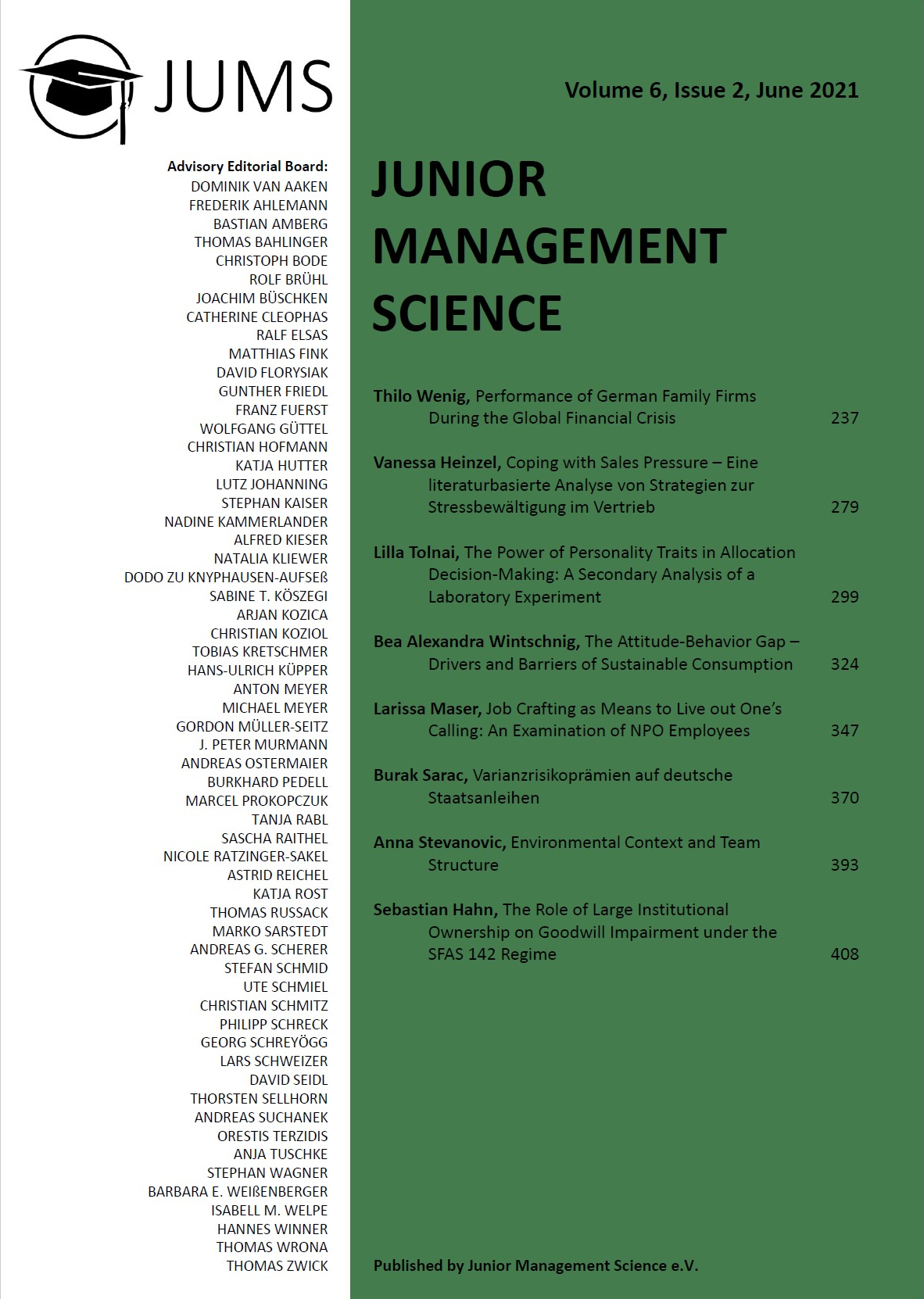Abstract
Although the stress level of employees has increased by 20% in recent years, the topic of stress receives little attention in marketing and sales research. Based on Lazarus' Transactional Stress Model, this paper identifies causes and consequences of stress in sales and examines the effectiveness of different coping strategies for stress. Results show that role conflict and ambiguity cause stress. Stress has negative effects on job satisfaction, performance, and commitment of a salesperson. In terms of coping with stress, problem-focused coping strategies are more suitable than emotion-focused strategies because they help to actively control stressful situations. The results offer managers two options to avoid the consequences of stress: Addressing causes and fostering characteristics that increase the use of problem-focused coping strategies, such as an employee's self-efficacy expectancy. Future research should examine additional factors influencing coping strategy choice, such as work environment, and effects of this choice on mental and physical health.
Keywords: Stress; Coping; Sales.

This work is licensed under a Creative Commons Attribution 4.0 International License.
Copyright (c) 2021 Junior Management Science e.V.

